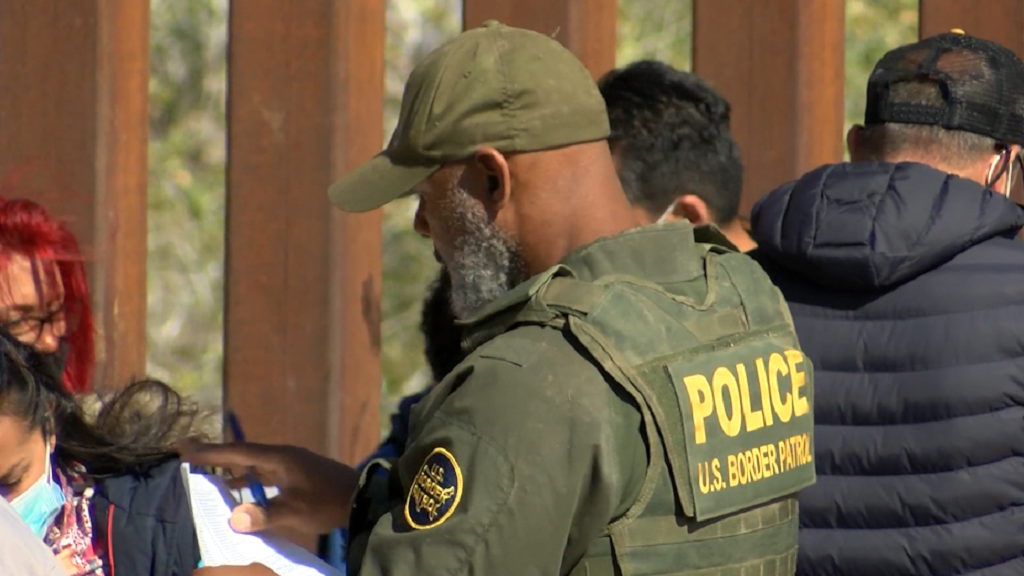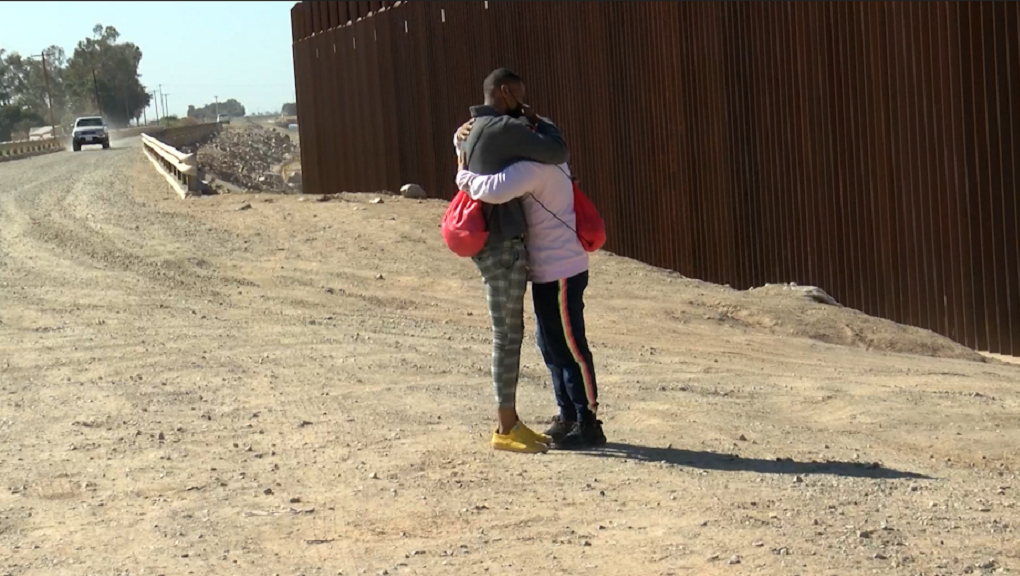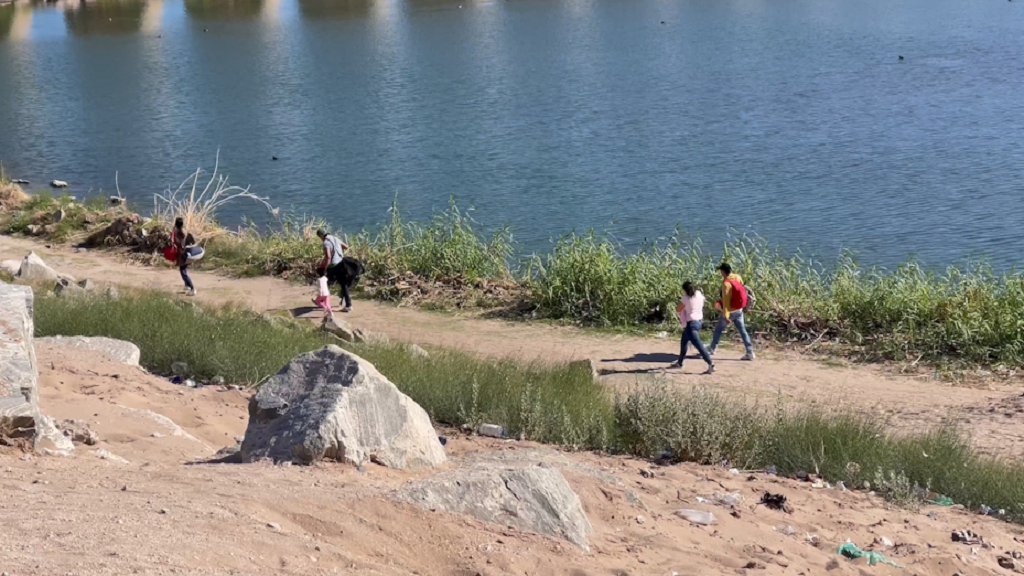SPECIAL REPORT: An in-depth look at the growing immigration backlog
News 11's Adonis Albright explores how nonprofits have been bridging the growing gap of pending asylum cases
YUMA, Ariz. (KYMA, KECY) - In the first month of 2022, U.S. Customs and Border Protection (CBP) reported 111,437 unique migrant encounters. Although this an 18% decrease from the month prior, the backlog of pending asylum cases only continues to grow.
Whether it's seeking a better life or escaping persecution in their home county, each migrant has a different story to tell. But one thing is common: the many hurdles and lengthy process they have to go through to even have a chance at obtaining citizenship has been described by many activists as daunting.
In some cases, it's a sacrifice migrants are willing to make. But others slip through the cracks.

According to Syracuse University's Transactional Records Access Clearinghouse, the number of immigration cases reached nearly 6.1 million in 2021.
News 11 reached out to the U.S. Department of Justice (DOJ) to request an on camera interview regarding the current caseload immigration judges are facing. Although the request was denied, the DOJ deferred to nationwide statistics.
For perspective, the DOJ reported more than 114,000 cases were completed the same year. That's no where near enough to keep up with the growing caseload, and as a result, immigration courts nationwide are overwhelmed.
But behind those numbers are people like Ismael Garcia, who after making the long and difficult journey from Cuba, shared an embrace with his friend at the Yuma border - overcome with emotion at how far they've come.

"I have children in Cuba. I have my mom, I want to make my future here in the United States, and I hope this kind American government chooses me and I can move forward with my life," said Garcia.
Garcia and thousands like him hope they will have their asylum claim heard. But the road to get there can sometimes be even longer than the journey north. One of the many hurdles migrants face is a lack of access to resources.
That's where people like Lilian Serrano come in. She's the co-director for Universidad Popular, a nonprofit based out of San Diego County that has been on the frontline; providing humanitarian assistance for migrants and informing them of their rights. The organization is part of a larger network known as Alianza Comunitaria.
"It's a network that informs community members of the presence of immigration rates, checkpoints by Border Patrol and by police, and information that we think folks in our network might benefit from," said Serrano.
Serrano said that navigating the U.S. legal system is a process that can often times be overwhelming. From the language barrier to requiring specific information and documents, it's a process that can take up to several months, or even years - leaving some people in limbo until their case can be heard.
"We end up using service providers that are private attorneys, which brings up a whole different level of challenges because now we're talking about finances," said Serrano.
But not every migrant gets to have their day in court. According to the U.S. Department of Justice, in 2021 as few as 7,285 people were granted asylum. However, that number jumped to 14,548 in the first month of 2022. According to Syracuse University's Transactional Records Access Clearinghouse, this is indicative of the Biden administration's approach to processing asylum seekers.
"After traveling so long to get to the United States to be able to find a safe haven, and then being rejected at the border. There's thousands of people being expelled under Title 42," said Paulina Reyes-Perrariz, an immigration attorney for the Immigrant Defenders Law Center.
Reyes-Perrariz notes that on top of the backlog of immigration cases, Title 42, a Trump-era policy that was essentially dusted off during the coronavirus pandemic, forces people who manage to make it to the U.S. to return to their home country. In some cases, a home they fled out of fear for their lives - a policy Reyes-Perrariz describes as inhumane.
"It should not be in place for individuals seeking asylum and fearing returning to their home country. It's the law to be able to seek asylum. Individuals just want a safe place to be away from persecution, away from possibilities of torture."
In December 2021, the Biden Administration also reimplemented another Trump-era policy following a court order, the Migrant Protection Protocols (MPP), better known as the Remain in Mexico policy. It was first put in effect at the San Diego and El Paso ports of entry, with plans to expand to other sectors of the border through 2022.
Reyes-Perrariz describes the policy as arbitrary, and can place migrants in vulnerable situations.

"Every time they have a court hearing they're bused in early in the morning and have to wait until the afternoon for their cases to start. Speak with a judge, and then get a new hearing and are returned back to Mexico to dangerous places sometimes. Some folks don't have housing or a stable place to live, or stay the night," she added.
Nonprofit organizations have been shouldering the brunt when it comes to helping out with the influx of migrants seeking asylum. The message among these organizations, and even elected leaders, appears to be consistent: the Biden administration needs to step up and do more.
"Joe Biden, who took an oath to uphold and defend the constitution should honor that along with his self-appointed border czar, Kamala Harris," said Governor Doug Ducey (R - Ariz.) in an exclusive interview with News 11, during his recent trip to Yuma.
Related: Governor Doug Ducey holds border meeting in Yuma
Serrano echoed a similar sentiment when asked how these shortfalls in the asylum process are being bridged.
"I think - and this is something that we all agree on - it shouldn't be the nonprofit sector, right - this is an issue that should be solved by - not even our county officials, but this is a problem by our federal government," said Serrano.
According to U.S. Customs and Border Protection, 51% of the migrants encountered were turned away under Title 42 in 2022. News 11 reached out to the Yuma Sector and the El Centro Sector Border Patrol, as well as U.S. Immigration and Customs Enforcement (ICE), to ask how many migrants have been processed for expulsion since the policy was reimplemented in the Desert Southwest, but did not yet hear back.
On the horizon, another legal battle is brewing in Washington, D.C. The U.S. Supreme Court is expected to weigh in on the fate of the Remain in Mexico policy in April, which will likely set the precedent for the future of asylum seekers for generations to come.
